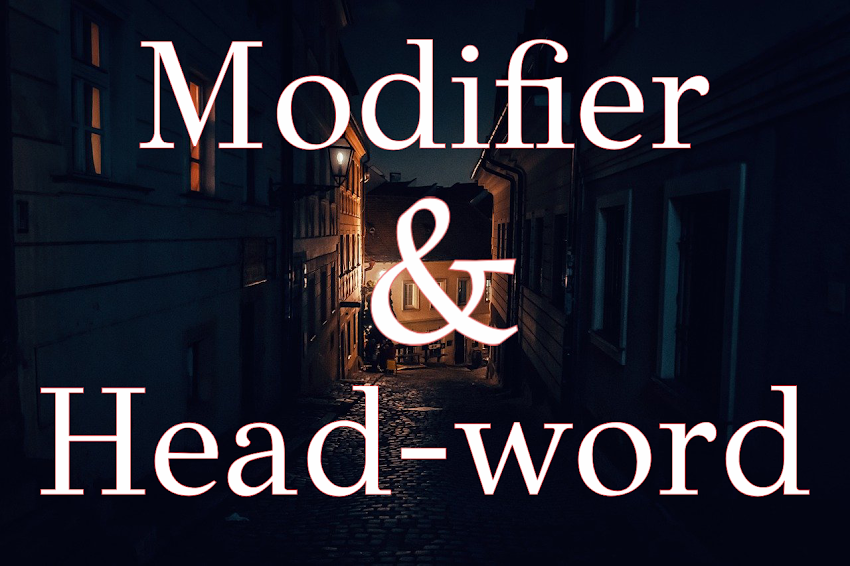Also
By
Azora Koice
A
Also is an adverb meaning "in addition", "as well", "too". Let's see example below. James is an English teacher. He also…
Read more »
Along
By
Azora Koice
A
Along is a preposition of motion (or movement) or place meaning "from one end towards the other end". For example: 1. Sam often walks along thi…
Read more »
Irregular plural
By
Azora Koice
I
We form the regular plural of English nouns by adding -s or -es. For example: dog => dogs ; box => boxes etc. Irregular plurals are exceptions to …
Read more »
Irregular Verb
By
Azora Koice
I
Many of the most common main verbs in English are irregular. This means that they form their past tense form and past participle form in a different way fr…
Read more »
Present Continuous Tense
By
Azora Koice
P
Present Continuous Tense is the tense which shows any actions happening at the time of speaking. This is a general definition.
Read more »
Ago
By
Azora Koice
A
Ago is an adverb of time. It measures the time from "now" back to a fixed point. For Example: Sam was born 34 years ago . (= 34 years before &qu…
Read more »
Many
By
Azora Koice
M
Many is either a determiner or pronoun. It has the comparative and superlative forms more and most .
Read more »
Man
By
Azora Koice
M
Man is a noun and has the irregular plural men . In a general sense, man refers not just to male people, but also to the whole human race (="mankind&qu…
Read more »
Main clause
By
Azora Koice
M
A sentence must have a main clause at least one. However, it can have more thant one main clause. A main clause is a clause which is not dependent on, or …
Read more »
Indefinite pronoun
By
Azora Koice
I
Some pronouns have a definite meaning. They're personal , reflextive and demonstrative pronouns. Other pronouns, which do not have definite meanings, ar…
Read more »
Indeed
By
Azora Koice
I
What is "indeed"? Indeed is an adverb. It adds emphasis to very (as an adverb of degree). For exmaple: This building is very high indeed . (=…
Read more »
Modifier and Head-word
By
Azora Koice
H
·
M
In English phrases , there is usually one word which is the main word in the phrase, and we can add one or more modifiers to this to specify its meaning more…
Read more »
Indirect Question
By
Azora Koice
I
Indirect question consists of two main questions. They're yes-no questions and wh-questions. Let's see below. 1. Yes-no questions Yes-no questions …
Read more »
Am
By
Azora Koice
A
Am is the form of the verb be used after I . Example: I am going or I 'm going (contraction form). Question: Where am I? | Who am I? | What am I? …
Read more »
Search
Latest
7-latest-65px
Sections
Popular Posts
-
Now is an adverb. 1. Adverb of time Now means: (1) "at this time", "at the present time". (2) "very soon...
-
" The " is called the "definite article". It's the most common word in English. It contrasts with the "indefi...
-
What are "articles"? The articles are a /ə/ , an /ən/ (called indefinite article), and the (definite article). See more...
-
A complement normally follows the verb phrase . The main verb is usually BE . A complement tells us something about the nature of the su...
-
Last is either an ordinal or adverb. It refers to anything or anyone that comes at the end of a series. 1. Last is the opposite of first...




















